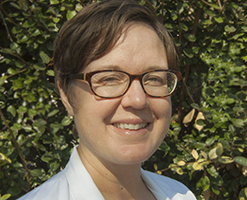 So you just completed your cleanse, diet or detox program, now what? Whether it was to get out of inflammation, burn fat, boost energy or mental clarity, rebalance hormones, sleep or digest better, strengthen the immune system or become superhuman, how do you keep the wellness gains you just made?
So you just completed your cleanse, diet or detox program, now what? Whether it was to get out of inflammation, burn fat, boost energy or mental clarity, rebalance hormones, sleep or digest better, strengthen the immune system or become superhuman, how do you keep the wellness gains you just made?
The most important factor to long-term health is what happens in your daily habits after you have achieved these goals. A 1999 study about weight loss detoxes concluded that quickly losing weight only resulted in total or even more weight gain five years later. (McGuire, M. T., Wing, R. R., Klem, M. L., Lang, W., & Hill, J. O. (1999). What predicts weight regain in a group of successful weight losers? Journal of Consulting and Clinical Psychology, 67(2), 177–185). While a once-a-year reboot can help cardiovascular health, autoimmune disease, digestive health, and thyroid and adrenal balance, daily habits are what actually make the biggest difference long-term.
Detoxes, cleanses and extreme diets are really meant for short-term changes. We certainly cannot expect to stay well if our previous bad habits return. Nurturing our detoxification and metabolic organ systems are key – liver and digestion, kidneys, thyroid and adrenals.
It is important to support these systems every day through nutrition, exercise, proper sleep, or supplementation. When we have over-accumulated toxicity, the metabolic and detox organs truly have to work overtime. Now that you have given them a break, how you work them from here matters.
The best way to maintain the liver is to not inflame it daily. Eating non-inflammatory foods, minimizing or abstaining from alcohol and smoking, and drinking enough water all benefit the liver. Common inflammatory foods are sugar, gluten and dairy. When running IgA, IgG, and IgE food inflammation panels, gluten and dairy are common reactives. In fact, in the naturopathic world, we commonly refer to gluten and dairy as the “drinking and smoking” of nutrition.
Foods that directly benefit the liver are anything rich in B vitamins, antioxidants, and anything that stimulates bile flow. Colorful vegetables–carrots, sweet potatoes, beets, and green–fit this profile. Bitters–chard, spinach, dandelion, arugula, collard greens–all stimulate bile, which helps the liver detox pathways. Drinking milk thistle, dandelion, or burdock root teas also benefit the liver. Try to eat two handfuls of dark green things each day, whether in a salad, greens drink, or thrown in your soup, sauce, or chili. Your liver will want to be your friend again.
The liver mainly eliminates detox metabolites into the digestive tract. So, keep your digestion as healthy as possible. Remember those inflammatory foods? Gluten, dairy and sugar are common causes of leaky gut or chronic microcytic colitis that contributes to the inflammation that drives pathologies. To maintain gut health, probiotics and healthy foods are the two mainstays.
After the bowel tissue is healthy, it is possible to maintain probiotics via foods; but most often we need to increase our gut diversity by rotating through various therapeutic probiotics regularly. Rotating through cultured lines like Ortho Biotic, Ther-Biotic, and HLC Multi Strain, and alternating with soil-based probiotics like Megaspore, Prescript Assist, and Corebiotic are ways to increase diversity of the gut flora. A diverse gut flora minimizes gut inflammation.
The kidney system is harmed significantly by dehydration. The golden question is how much water should you drink each day? The U.S. National Academies of Sciences, Engineering, and Medicine determined that an adequate daily fluid intake is: About 15.5 cups (3.7 liters) of fluids a day for men. About 11.5 cups (2.7 liters) of fluids a day for women.
Various climates, body weights, and activity levels can influence this amount. I usually recommend drinking half your body weight in ounces, adding ½-1 liter more on a hot Texas day or if you are sweating from exercise. Adding electrolytes and trace minerals to water is key. If you experience a leg cramp, eye twitch, or headache, you are already dehydrated and your kidneys are hurting.
The thyroid and adrenals are metabolic organs that also need daily attention. Managing stress, getting adequate quality sleep, and exercising are habits that nurture these organs. But, when these are just not happening, herbs, vitamins and glandulars work well.
Ashwagandha is an adrenal adaptogenic herb (something that balances you out) that is a go-to for exhaustion coupled with extreme stress. This nervous exhaustion is typically called “wired and tired.” Studies show that ashwagandha is calming by acting as a GABA (gamma-aminobutyric acid) mimetic agent–GABA is the chief calming neurotransmitter. (Upton R. ed. Ashwagandha root Analytical, quality control and therapeutic monograph. American Herbal Pharmacopoeia 2000; April 1-25). Gaia Herbs and New Chapter are two companies that offer quality ashwagandha formulations.
Thyroid and adrenal glandulars are common and effective therapies for rebalancing when herbs alone are not enough. Glandulars are made from the thyroid or adrenal organs of usually a pig or cow. The standard American diet typically does not include organ meats, so encapsulated glandulars are a great option. Certain medications, like Armour Thyroid are glandulars. However, several others are available over the counter.
AdrenaMed GL150 by NuMedica has 50 mg of bovine adrenal gland along with the adrenal adaptogenic herb rhodiola and basic vitamins for supporting the HPA (Hypothalamus, Pituitary, Adrenal) axis. This axis is the main biofeedback route that gets disrupted with chronic stress to the point where both adrenal and thyroid function is depleted and metabolism and energy slows. Cortisol, the main stress hormone from the adrenals will also deactivate thyroid hormones, creating hypothyroidism. Whenever someone presents with hypothyroidism, or low thyroid function, we know the adrenals are, in part, to blame.
NuMedica also created Thyrodex T-150, a thyroid glandular formula that includes the essential vitamins or “groceries” the thyroid needs. People with hypothyroidism often need tyrosine, iodine, selenium, the basic nutrition needed by the thyroid, in addition to their prescriptions. ThyroMedica, ThyroVen, and Thyroid Support Complex are all formulas containing the basic vitamins needed for thyroid function. Make sure to work with a skilled practitioner to determine whether testing for iodine is necessary and just how much and what form of iodine you may need depending on your medications.
Detoxes and cleanses are wonderful ways to reestablish balance in the body. Keeping that balance relies on what you do every day. Habits and nutrients that support our adrenals, thyroid glands, liver, gastrointestinal and kidney systems will minimize risks for chronic illness. Considering these organ systems daily, not just during a detox, will impact your whole life.
 Amy Nelson, ND* received her Naturopathic Doctorate from the National College of Natural Medicine in Portland, OR where she studied nutrition, homeopathy, herbal and functional medicine. In addition, Dr. Nelson was the Associate at The IBS Treatment Center in Santa Monica where she treated irritable bowel syndrome and complex food allergies. Dr. Nelson utilizes her experience in natural medicine to address female and male hormonal imbalances, mental health, and digestive disorders. Amy is available for consultation at Peoples Wellness Center.
Amy Nelson, ND* received her Naturopathic Doctorate from the National College of Natural Medicine in Portland, OR where she studied nutrition, homeopathy, herbal and functional medicine. In addition, Dr. Nelson was the Associate at The IBS Treatment Center in Santa Monica where she treated irritable bowel syndrome and complex food allergies. Dr. Nelson utilizes her experience in natural medicine to address female and male hormonal imbalances, mental health, and digestive disorders. Amy is available for consultation at Peoples Wellness Center.
*Although licensed in other states, Naturopathic Doctors are not currently licensed in Texas.
If you have comments and/or questions about this blog, email us at blog@peoplesrx.com.
